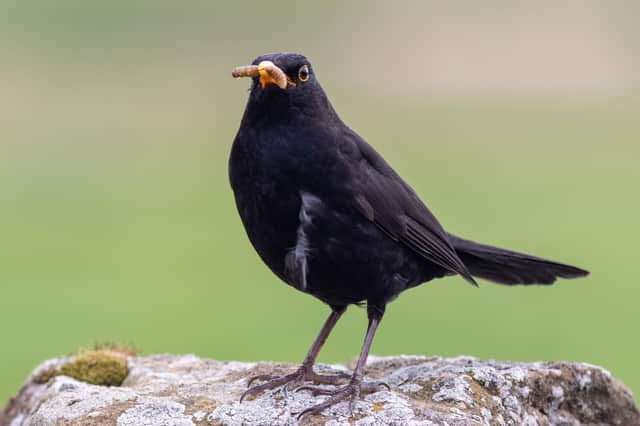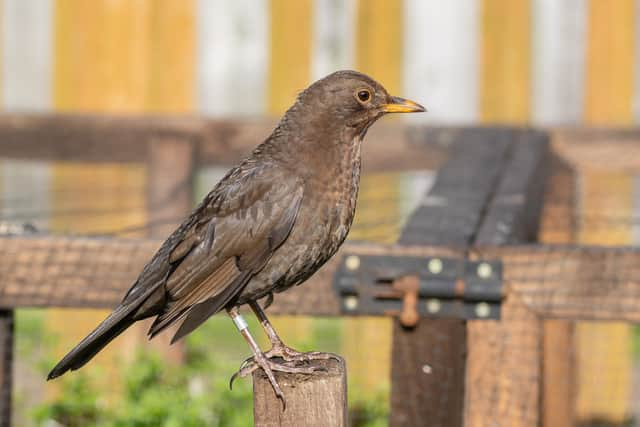NATURE NOTES: Exploring the secret life of one of Britain’s most underrated birds


Next time you see one, take a good look – their glossy, midnight, pitch-dark feathers are beautifully rich and the gold ring around the eye set off by an amber beak is really gorgeous.
Like other thrushes, they are true songsters - their melody sounds juicy as they learn different phrases from a wide variety of birds, while in winter when less singing is required they are always the first bird to fret and cackle from the bottom of a hedge when you pass by (especially on a childhood paper round).
Advertisement
Hide AdAdvertisement
Hide AdLike their close relative, the rare upland breeder the ring ouzel, blackbirds were once named ‘ouzel’, after the old English ozle.


Your male garden blackbird hopping dumpily to the fruity nibbles and soaked mealworms holds his territory for life - up to 21 years – though the average is around 3 years.
From autumn right through to July, males will form individual territories, while the streaked brown female makes a large, comfy-looking nest, usually in a hedgerow.
In your garden, avoiding chemicals will help blackbirds and other birds thrive – they’ll come and help eat your pest insects.
Advertisement
Hide AdAdvertisement
Hide AdAs for many garden birds, insects are crucial for growing chicks in spring and summer.
Many people consider ‘Blackbird’ to be the ultimate blackbird song, but a better one is ‘Aerial Tal’ by Kate Bush – where she sings alongside a blackbird.
You’ll also hear a woodpigeon on there – she draws the line at accompanying these.
Note: The thing the nursery rhyme left out is that the blackbirds were live when they were baked in the pie – it’s a mystery what happened to them once they flew out!